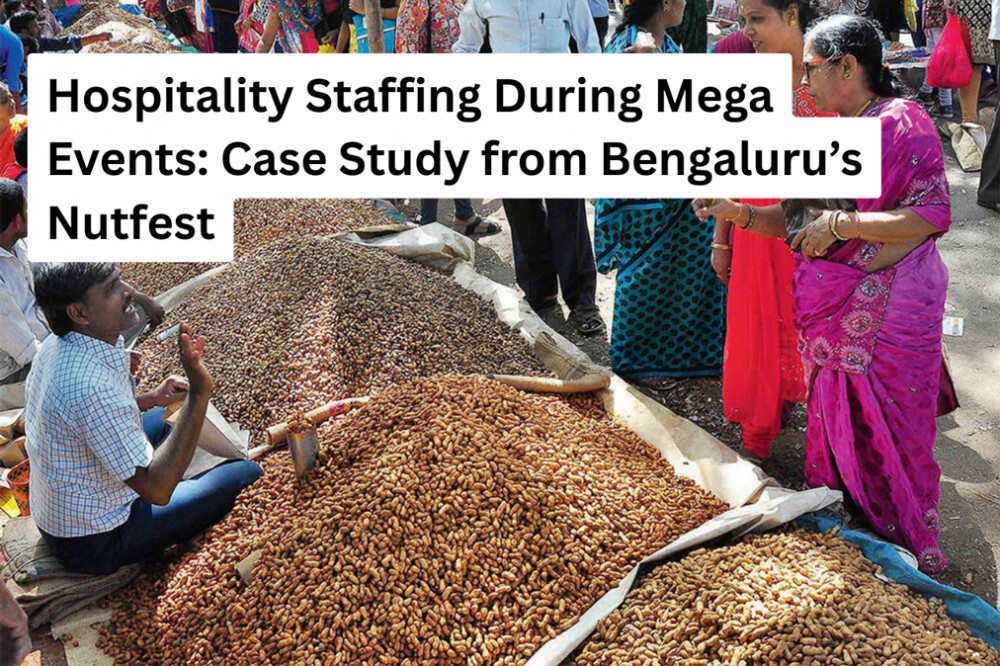
How Hotels Use Social Recognition to Boost Staff Morale

The Indian hospitality industry is one of the fastest-growing in the world, with a diverse workforce ranging from frontline workers at luxury resorts to housekeeping teams at boutique hotels. In this fiercely competitive market, hotels are beginning to realise that employee engagement and morale are just as essential for the success of a business as occupancy or room tariffs. It's the motivation of the employees that would improve the guest experience as well as brand reputation in a market where tailor-made service is crucial.
Social recognition is one of the main ways Indian hotels motivate their staff. Recognition involves acknowledging the contribution and achievement of an employee publicly. With front-line people dealing directly with the guests, recognition as a tool becomes even more vital for keeping morale and building loyalty.
Understanding Social Recognition in Indian Hotels
Socially recognising employees' efforts means some form of public appreciation or commendation, be it from a manager, peer-to-peer compliment, or guest-based feedback. In the Indian context, social recognition is much more than just an award, as it draws on cultural concepts of respect, community, and interpersonal relationships.
Common types of social recognition in Indian hotels entail:
- Peer recognition: Staff praise each other for teamwork or outstanding service.
- Managerial recognition: Department heads or hotel managers publicly recognise outstanding employees.
- Organised recognition events: Employee of the Month selections or star ratings for employee performance, or even internal newsletters that highlight achievements within the staff itself.
Social recognition differs from cash or tangible gifts by being an intrinsic reward. It generates feelings of pride and belonging, which are particularly important in the Indian hotel environment, where staff work long hours and very often have to deal with high guest volumes.
Why is Social Recognition Important to Indian Hospitality?
Indian hotels have their peculiar challenges: sky-high guest expectations, pressure during peak season, and workforce diversity in culture. Frontline staff, especially housekeeping, front office, concierge, and food and beverage teams, serve under strenuous conditions to maintain flawless levels of service. These efforts, if not appreciated, can lead to low morale, disengagement, and eventual turnover.
Research within the Indian hospitality sector shows that employees who are recognised are:
- More productive: Motivated to sustain high service standards.
- More loyal: Recognition keeps attrition rates down in an industry notorious for workforce churn.
- More engaged: Recognised employees become active participants, cooperative, and genuinely interested in guest satisfaction.
In Indian hotels, where guest experience frequently revolves around personalised attention and cultural sensitivity, recognition becomes a strategic tool to foster a motivated and service-oriented workforce.
How Indian Hotels Implement Social Recognition Programs
1. Employee of the Month and Recognition Boards
In India, many hotels, spanning from luxurious chains to heritage properties, have some form of an Employee of the Month program to sing accolades to their employees' outstanding performances. There are variations of the program that may include:
- Certificates or plaques are expertly displayed in common areas for employees
- Digital newsletters or intranet announcements
- Rewards, such as vouchers, extra leave days, or even the finer indulgences of dining.
A hotel in Jaipur may give recognition to a housekeeping member who is in the limelight due to positive guest feedback regarding room upkeep or to a chef in Mumbai whose ingenuity redefines dining experiences. Public recognition is not only for establishing standards for excellence, but it also encourages healthy competition among peers.
2. Peer-to-Peer Recognition Platforms
Some Indian hotels, mostly in capital cities like Mumbai, Bengaluru, and Delhi, are now building in the digital method of socialising so that staff may recognise each other's contributions in real-time. Features may include:
- Posting an appreciation message to colleagues
- Awarding badges or points to colleagues for teamwork
- Redeeming points for random perks or small recognition at company events
Peer-to-peer recognition nurtures a culture of support and collaboration. Employees are now motivated not just by the manager's acknowledgement, but by appreciation coming from a colleague who has a sense of what their daily life is about.
3. Guest-Initiated Recognition
In India, hotels use guest feedback to honour their staff because guest loyalty and word-of-mouth hold much sway in the hotel business. Some examples are:
- Highlighting positive reviews of guests who have praised certain employees
- Receiving "shout-outs" during check-out
- Featuring these staff members in social media posts or internal communications for the guests' compliments.
Recognition based on guest appreciation provides a morale boost and strengthens a staff member's pride in the job and their role in customer fulfilment.
4. Special Achievements and Milestone Celebrations
Recognition is another tool used by Indian hotels to commemorate both professional and personal achievements:
- Birthdays or anniversaries at work
- Obtaining professional certifications or training
- Outstanding performance during times of high demand or during festival seasons
In India's relationship-focused workplace culture, acknowledging milestones shows that the company values its workers as individuals rather than just as labour resources.
5. Recognition Driven by Leadership
In India, hotel executives are essential to boosting spirits. Department heads and managers usually:
- During team meetings, give employees praise.
- Incorporate employee success stories into internal newsletters.
- Thank staff members directly for their outstanding service.
Recognising leadership, particularly from well-known hotel officials, increases organisational loyalty and emphasises the value of employee contributions.
Assessing Social Recognition's Effect in Indian Hotels
Hotels gauge the success of their recognition initiatives by:
- Surveys of employee engagement: Assess motivation, sense of belonging, and employee satisfaction
- Increased morale is reflected in lower turnover rates.
- Guest satisfaction ratings: High levels of employee engagement directly improve the calibre of services.
- Productivity metrics: Acknowledged staff members frequently provide more reliable and superior service.
By using these metrics, Indian hotels can improve their recognition programs and make sure they result in noticeable increases in employee satisfaction and visitor satisfaction.
Indian Hotels' Best Practices
- Prompt acknowledgement: Honour accomplishments as they occur.
- Specific feedback: Emphasise specific actions and outcomes.
- Make sure employees from all departments, shifts, and job levels receive inclusive recognition.
- Mix private and public gratitude: Incorporate team-wide acknowledgement with individual thank-yous.
- Utilise technology: To expand recognition throughout multi-property operations, use apps, intranet portals, or digital badges.
- Align recognition with values: Encourage actions that are consistent with the brand ethos and service culture of the hotel.
By implementing these strategies, Indian hotels foster a work environment where staff members are inspired, motivated, and dedicated to providing outstanding guest experiences.
Indian hotels like Taj, Oberoi and ITC adopt different initiatives like peer-to-peer and leadership recognition programs to celebrate their staff who go beyond to serve their guests. Integrating recognition into internal communication, combining milestone celebrations - employee of the month tag during peak or festive seasons - all these boost staff morale, increasing retention.
The Power of Recognition
Indian hotels promote a culture of inspiration, pride, and cooperation by putting in place initiatives that range from peer-to-peer and guest-driven recognition to leadership-led kudos and milestone celebrations.
Employee recognition and celebration are a long-term business strategy, not just a human resources endeavour. In order to ensure both employee satisfaction and guest loyalty, hotels that invest in social recognition develop a workforce that is engaged, resilient, and dedicated to providing exceptional service.
Are you prepared to boost employee morale on your property? Find out how Foodism Connect can make employee engagement simple and effective by assisting you in identifying, recognising, and rewarding top-performing hospitality talent.
Download Foodism Connect now!!!
Related Blogs

The Rise of Boutique Hotels: Recruiting for Experience, Not Size
73 Views

Top 5 Hospitality Roles Most in Demand This Quarter
71 Views

Hospitality Staffing During Mega Events: Case Study from Bengaluru’s Nutfest
86 Views

Festival Hospitality: What Food Events Teach About Guest Management & Staffing
194 Views

Little Guests, Big Smiles: How Hotels Design Family-Friendly Experiences
171 Views